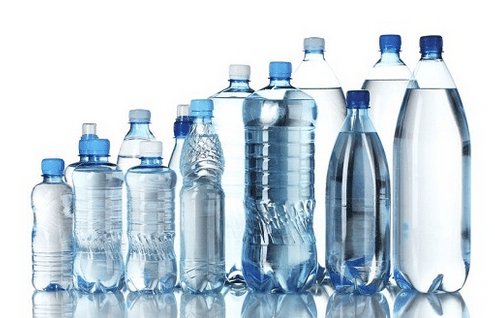A reminder about 66 million plastic water bottles….
 Every now and then, it’s important to re-aquaint ourselves with some basic eco facts. The conventional wisdom is that the general public needs to constantly have relatable facts put in front of them to help them begin to shift their behavior toward a more sustainable model. The mantra of “it’s the small things you can do that add up to big changes” is preached over and over. I do it myself in all my writing and speaking – giving tips and tricks for easy assimilation so that the average person doesn’t feel overwhelmed by the enormous task in front of us. But sometimes I feel overwhelmed and panicked myself, just by looking at The Numbers. Then it’s back to the drawing board: keep repeating the message, make it simple, make it relatable.
Every now and then, it’s important to re-aquaint ourselves with some basic eco facts. The conventional wisdom is that the general public needs to constantly have relatable facts put in front of them to help them begin to shift their behavior toward a more sustainable model. The mantra of “it’s the small things you can do that add up to big changes” is preached over and over. I do it myself in all my writing and speaking – giving tips and tricks for easy assimilation so that the average person doesn’t feel overwhelmed by the enormous task in front of us. But sometimes I feel overwhelmed and panicked myself, just by looking at The Numbers. Then it’s back to the drawing board: keep repeating the message, make it simple, make it relatable.
I thought it valuable to share The Numbers that really got to me the other day. I write a green facts post for my daughter’s school newsletter, and this was what I wrote for them a couple of weeks ago. My hope in sharing it here, is that it will help all who read it to keep their focus on the simple, easy changes we could all participate in, to re-evaluate your own habits to see if something needs adjusting, and to be inspired to spread the word.
I can remember when plastic water bottles didn’t exist – we somehow all survived without them. Yet we are now willing to trash the planet for the sake of convenience. Why?
Facts About Single Use Plastic Water Bottles:
66 million plastic water bottles will go into the garbage today.
Most water bottles are made of polyethylene terephthalate (PET) plastic. Recycling of PET is about 23%, meaning Americans throw-away 38 billion bottles a year, meaning one billion dollars worth of plastic water bottles go into landfills and litter each year.
PET is made from crude oil. PET bottles produce toxic emissions at rates of 100 times that of glass. It will take 400 to 1,000 years for this type of plastic to degrade in the environment.
Making bottles of water out of plastic takes more than 1.5 million barrels of oil, every year. That much oil could fuel 100,000 American cars for a year.
The plastic water bottle manufacturers with all their products generate greater than 2.5 million tons of carbon dioxide each year. They also require seventeen million barrels of oil each year.
Americans spend over $15 billion dollars each year on bottled water.
Aquafina (Pepsi) and Dasani (Coke) sell 24% of all US bottled water. Yet, both are merely treated municipal tap water, resold to the public at a premium mark-up.
If tap water cost the same as the cheapest bottled, monthly water bills would come to $9,000.
Bottled water can cost as much $10 per gallon, making gasoline cost less than bottled water.
Solution: Fill your re-usable water bottle with filtered tap water. If you use a Brita-type filtration system you can make another responsible choice by recycling your pitcher filter when you replace it, which should be about every two months (or every 40 gallons).
Annual savings, even if you buy the most expensive, re-usable water bottle ($50) and a basic filter, is about $300 if you drink one bottle’s worth of water a day, but if you drink as much water as you recommended (8 eight ounce glasses; 64 oz per day) you’d be saving about $700 per year and that’s factoring in buying water in bulk containers.
And of course, if you do consume water out of a plastic bottle, always recycle it!

Recent Comments